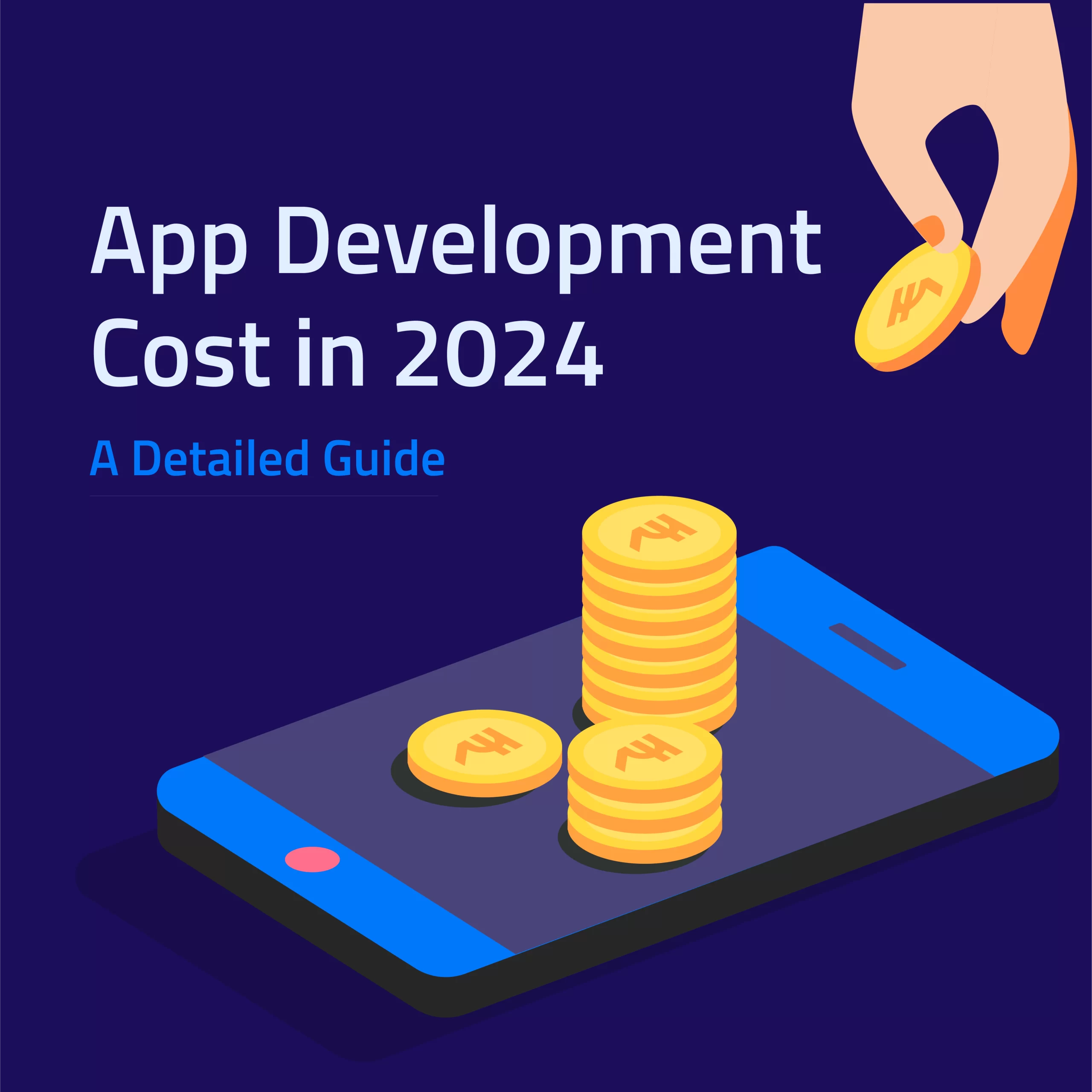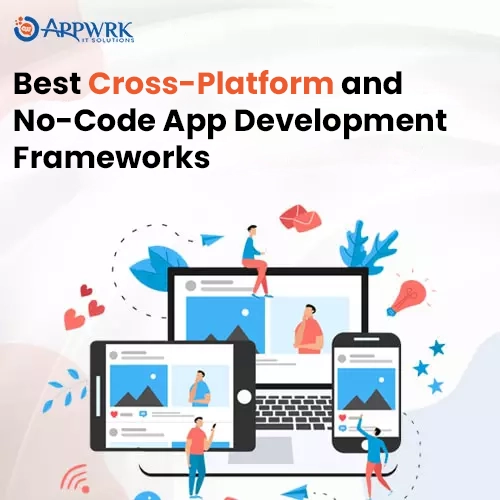What are the Programming Languages used for Mobile App Development and Which One is Popular?

The mobile app market is rising at a rapid pace, with revenue from the industry continuing to boom year after year. Currently, it is touching a margin of 469,198 million USD in 2022 and is expected to reach 613,433 million USD by 2025.
So, what does it mean?
It means if you are looking forward to tapping into the mobile app market, now it’s the time to dive in.
But if you are wondering, it’s easy, and you can use any language for your Android and iOS mobile app development, you need to reconsider. There is something crucial you must know before spending time, money, and effort.
This blog is going to take you on a journey of some popular mobile app development languages that will help you make the right decision by letting you select the best language for your mobile app development project.
Table of contents
What Are the Different Types of Mobile Apps?
Before getting into depth and finding out the best mobile app development language, let’s get some basic understanding of different types of mobile apps.

Native Apps
A native app is an app that uses technology dedicated to one specific platform, like iOS or Android. Every OS carries its own language when it comes to coding a native app. So if you are building an iOS native app, you can go with Objective C or Swift programming language. On the other hand, you can go with Java or Kotlin for Android native app development.
Native app development is a great choice when it comes to creating an app for one specific platform. It is considered when you want to provide the best user experience by keeping all the unnecessary features aside.
It means if you are planning to create a gaming app or an app containing heavy animations, native apps are the best choice to go with. It is their ability to offer smooth performance even with high animations.
Pros of Native Apps
- Simple code and ecosystem for faster performance
- Good offline functioning
- Platform-customized UI/UX components for enriched user experience
- Various layers of protection of the operating system for enhanced security
- Independent of third-party frameworks and libraries
- Fast to build as it is only for a specific platform
- Comparatively longer release cycles
- Easy prevention of bugs and tech issues
Cross-platform Apps
Cross-platform apps are fit enough to run on multiple platforms of smartphones. It means you can use the same code for the apps that run on all platforms. It is a wise decision to go with a cross-platform app development as it is suitable for Android as well as iOS users.
Pros of Cross-platform Apps
- The real joy of using the same application on any of your devices.
- Rapid marketing as users are not required to create different apps for different platforms.
- One source code that can be reused for any app development
- Easy implementation.
- Easy maintenance due to fewer tests and ways to deploy fixes.
- Wider audience reach
Progressive Web Apps
PWA or Progressive Web Apps runs in a web browser but offers the same look and feel as that of a native app. It means you can install the app on your mobile device. PWA is going to work offline. In addition to this, you can still use hardware features like a camera, GPS, etc., without facing any trouble. It takes advantage of the latest the web has to offer.
Here each platform is optimized, and there are no limitations to the programming languages. This means you can choose any programming language of your choice. So if you are looking for a low-cost and robust e-commerce app, PWA is going to be the best option to go with. The good thing about PWA is its ability to draw more traffic than usual due to its ability to be accessed on multiple devices and platforms.
Pros of Progressive Web Apps
- These apps can be found in the browser
- Comparatively faster-loading speed
- It can easily function offline
- Cost efficient when it comes to developing
- It can be accessed easily from various platforms and devices
- Good adaptability to various screen sizes
- No requirement for any installation
Hybrid Apps
Hybrid apps is a blend of native apps and web apps. The good thing about hybrid apps is their ability to let developers code in a single language that can run on multiple operating systems.
Apart from this, the hybrid app offers a lot of options. You can use many popular languages and frameworks like HTML, JavaScript, and CSS for building a hybrid app.
While building a hybrid app, you are free to create the backend codebase that can be further covered in a native shell. This offers you an app that can be used for both Android and IOS.
It is good to go with hybrid app development when you have a simple and content-based project that doesn’t demand any heavy features and animations.
Pros of Hybrid Apps
- Easy development, especially when it comes to multiple platforms
- Faster development time due to the use of the same backend for all variants
- Cost-effective due to the non-requirement of specialization in any specific language
- Easy maintenance as these apps are based on web solutions
- Easier to add updates and features due to a single codebase
- Easy integration with web-based services
Best Language for App Development
When it comes to mobile app development, there is no single mobile app development language that can fulfill all requirements for all platforms. It all depends on the platform, as well as the kind of app you are developing that helps you decide the right programming language.
Moreover, having an idea of app languages is not only crucial for developers only but for their customers too, who are willing to understand the project processes and want to know the best suitable language to go with for future projects. So let’s dig deeper to find out which mobile app development languages are good to go with as per your specific need.

iOS
For devices running iOS, iPadOS, tvOS, watchOS, and macOS, Objective-C and Swift programming language is the best option to go with.
Objective-C & Swift
Both Objective-C and Swift are key languages for writing iOS apps. These are object-oriented languages and provide you with ease to group similar tasks in the coding process. This significantly speeds up the development process, especially during the front-end mobile app development. Apart from these, you can also go with C#, HTML5, and Java.
Android
With more than 2.5 billion active users spanning over 190 countries, Android is the most popular OS in the world. Android developers not only prefer to write in Java and Kotlin, but they also like to prefer more mobile app development languages. Here are some of the popular programming languages for Android.
Python
One of the most popular programming languages for Android mobile app development is python. It is implemented using Kivy and the native BeeWare library.
Kivy is an open-source library that is used to build cross-platform applications, including for Android and iOS.
BeeWare is a suite of UI tools used to build native Android apps.
Although there are rare Android developers who prefer Python programming, they are getting good support from a huge programming community.
C / C ++
C language is a high-performance language and is crucial when it comes to something heavy like a mobile 3D game where animations play a major role. But it comes with a drawback. You still have to resort to Java, without which you cannot create a fully-fledged mobile app. The Android NDK will let you write C/C++ only as a part of the app.
Java
Mobile app development via java language is one of the popular things to do. It is a strongly typed general-purpose, object-oriented programming language that often takes the highest popularity ratings.
Apart from this, there are other mobile backend mobile app development languages that are often used for Android app development. Some of the most common are JavaScript, PHP, Kotlin, C#, etc.
Cross-platform
Cross-platform apps are written for different platforms at once. The language used for the same is a single non-native language. So what is the possibility for such a code to work on different devices?
Apart from this, there are two native programming language choice approaches you can go with. The first one comes at the stage of preparing an app for release that is turned down into a native for a particular platform using a transpiler (source-to-source compiler that reads source code written in one programming language and generates the equivalent code in another language). Here one cross-platform programming language is translated into another.
In the second one, a particular wrapper is added to the resulting code that is already working on the device. Here the queries are broadcasted from the non-native code to the native functions of the system.
If we talk about the tools, Cordova and PWA work exactly in the ideology of the wrapper. You can go with web developers for mobile app programming on the HTML (Hypertext Markup Language), CSS (Cascading Style Sheets), and JavaScript in the form of core technologies.
Hybrid apps
While going for a hybrid app, you have to generally deal with some sort of JavaScript-based language, framework, or toolkit. Some of the best options to go with are C# (C sharp), Xamarin, React Native, or Appcelerator.
Progressive Web Apps
When it comes to web development, there are many programming languages and frameworks that you can go with. Some of the best among them are:
Scala
It is the combination of object-oriented and functional programming high-level language. The static types of Scala help avoid bugs even in complex apps.
JavaScript
JavaScript is an interface language that is used for creating and developing websites, desktop apps, and games. It works in almost all browsers and even with programs that are not hosted on the internet.
Dart
Developed by Google, it is a fully client-optimized language for rapid apps on any platform. It is one of the best substitutes for JavaScript.
jQuery is a fast, small, and feature-rich library for JavaScript that is used to make things like HTML document traversal and manipulation, event handling, animation, or Ajax quite simple with an easy-to-use API.
Apart from this, Cordova is one of the greatest mobile app development platforms. It allows developers to take advantage of web technology like HTML, CSS, and JavaScript to the fullest for creating a mobile app.
Svelte is one of the popular frameworks. Customized over JavaScript, it offers a radically unique approach to building web interfaces. It differs from traditional React and Vue solutions when it comes to code organization and the conversion of the code into a ready-to-use product.
The Most Popular Language for Mobile App Development
You might be wondering that after going through various mobile app development languages, which is the most popular one that is used worldwide by developers.
Well, Java is the most popular programming language that is the prime choice of developers from around the world. It is a powerful and robust server-side language that contains the most completed open source projects by developers across the globe.
Although it is possible to develop iOS applications using Java, it is mostly used for Android App development due to its flexibility and well-establishment among the developers. Even Android contains several development tools for Java.
Wrapping Up
When it comes to mobile app development languages, there is no shortage. You can choose from a variety of available languages to create a fully functional and highly responsive mobile app. But it always remains a good choice to put your demands first, especially when it comes to your specific business needs. You must be clear with who your users are, what platform they carry, what you want to offer through your app, what are the requirements of your app, the availability of ample frameworks, tools, and much more.
This way, you will not only be able to select the best possible programming language but will also be able to reduce the time, effort, and money that you are going to spend on building a mobile app.
About The Author







 Free Quote
Free Quote
















































